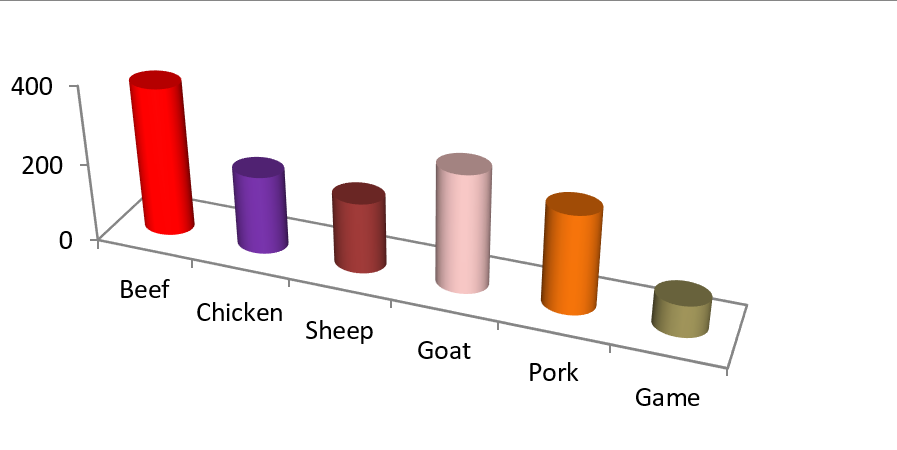
Introduction
In the ever-evolving agribusiness landscape, livestock nutrition plays a pivotal role in ensuring the health and productivity of animals. Whether you are a smallholder farmer or manage a large-scale operation, understanding the nuances of livestock nutrition can significantly impact your profitability. This expert Questions and Answers article is designed to provide actionable insights and strategies to help you enhance livestock nutrition, ensuring your animals thrive and your business flourishes.
Question 1: Why is livestock nutrition so important for farmers in Nigeria and Africa?
Answer: Livestock nutrition is critical for several reasons:
- Productivity: Well-nourished animals grow faster, produce more milk, and have better reproductive rates.
- Health: Proper nutrition strengthens the immune system, reducing the incidence of diseases.
- Economic Gain: Healthy animals require fewer veterinary interventions, lowering costs and increasing profitability.
- Sustainability: Balanced nutrition promotes better resource use and environmental sustainability.
In the African context, where resources can be limited, optimizing nutrition is essential to maximize the returns on investment in livestock farming.
Question 2: What are the key components of a balanced diet for livestock?
Answer: A balanced diet for livestock includes:
- Carbohydrates: Provide energy. Sources include grains, corn, and silage.
- Proteins: Essential for growth and repair. Sources include soybean meal, fish meal, and legumes.
- Fats: Supply concentrated energy and aid in the absorption of fat-soluble vitamins. Sources include oilseeds and animal fats.
- Vitamins: Necessary for various metabolic processes. Sources include fresh forages, grains, and supplements.
- Minerals: Crucial for bone development and metabolic functions. Sources include salt licks, mineral blocks, and supplements.
- Water: The most critical nutrient, essential for all physiological functions.
A diet that lacks any of these components can lead to deficiencies, impacting animal health and productivity.
Question 3: How can I assess the nutritional needs of my livestock?
Answer: To assess the nutritional needs of your livestock:
- Consult with an Animal Nutritionist who can provide tailored advice based on the species, age, weight, and production stage of your animals.
- Body Condition Scoring (BCS): Regularly assess the body condition of your animals to ensure they are neither too thin nor overweight.
- Monitor Feed Intake and Quality: Ensure that the feed is of high quality and that animals are consuming adequate amounts.
- Observe Animal Behavior and Health: Look for signs of nutritional deficiencies, such as poor coat quality, lethargy, or abnormal behaviors.
- Regular Testing: Conduct soil, forage, and water tests to identify any nutritional imbalances in your farm’s resources.
Question 4: What are some cost-effective feed alternatives for farmers in Africa?
Answer: Cost-effective feed alternatives include:
1. Crop Residues: Utilizing leftovers from harvested crops, such as maize stover and rice straw.
2. Agro-industrial By-products: Incorporating by-products like molasses, bran, and oil cakes.
3. Leguminous Plants: Growing and feeding protein-rich legumes like cowpea, groundnut, and pigeon pea.
4. Insect Protein: Exploring innovative sources like black soldier fly larvae, which are high in protein.
5. Hydroponic Fodder: Growing nutrient-rich fodder using minimal water and space, suitable for small-scale operations.
6. Supplementation: Using mineral and vitamin supplements to enhance the nutritional value of locally available feeds.
Question 5: How can I ensure the consistent quality of my livestock feed?
Answer:
To ensure consistent feed quality:
1. Source Reliable Suppliers: Work with trusted suppliers who provide quality feed and ingredients.
2. Storage: Store feed properly to prevent contamination and spoilage. Use airtight containers and keep them in a cool, dry place.
3. Regular Testing: Periodically test feed for nutrient content and contaminants.
4. Balanced Ration Formulation: Use feed formulation software or consult with a nutritionist to create balanced rations.
5. Education and Training: Stay informed about best practices in feed management through workshops, seminars, and online courses.
Question 6: What role do supplements play in livestock nutrition?
Answer:
Supplements play a crucial role in:
1. Addressing Deficiencies: They provide essential nutrients that might be lacking in the primary diet.
2. Enhancing Performance: Certain supplements, like amino acids and vitamins, can boost growth rates and milk production.
3. Improving Health: Supplements can strengthen the immune system and improve overall animal health.
4. Special Needs: Animals in different production stages or under stress conditions may require additional supplementation.
Common supplements include mineral blocks, vitamin premixes, and specific amino acids.
Question 7: How can technology aid in improving livestock nutrition?
Answer:
Technology can significantly enhance livestock nutrition through:
1. Precision Feeding Systems: Automated feeders that dispense the right amount of feed based on individual animal needs.
2. Nutritional Software: Programs that help formulate balanced diets and monitor feed efficiency.
3. Mobile Apps: Apps that track animal health, feed intake, and growth, providing real-time data to make informed decisions.
4. Smart Sensors: Devices that monitor environmental conditions, such as temperature and humidity, ensuring optimal feed storage and animal comfort.
Leveraging technology can lead to more efficient and effective feeding practices, ultimately improving animal health and farm profitability.
Conclusion
Improving livestock nutrition is a multifaceted approach that involves understanding the dietary needs of animals, sourcing quality feed, utilizing cost-effective alternatives, and incorporating technology. By focusing on these key areas, farmers in Nigeria and across Africa can enhance the health and productivity of their livestock, leading to greater economic gains and sustainable farming practices. Investing in livestock nutrition is not just about feeding animals; it’s about building a thriving agribusiness.
Ready to transform your livestock nutrition practices? Subscribe to our premium content for exclusive insights and detailed guides tailored to your farming needs!
This comprehensive guide aims to equip you with the knowledge and tools needed to take your livestock nutrition to the next level. Whether you are a seasoned farmer or just starting, these strategies will help you achieve optimal results and drive your agribusiness to new heights.

